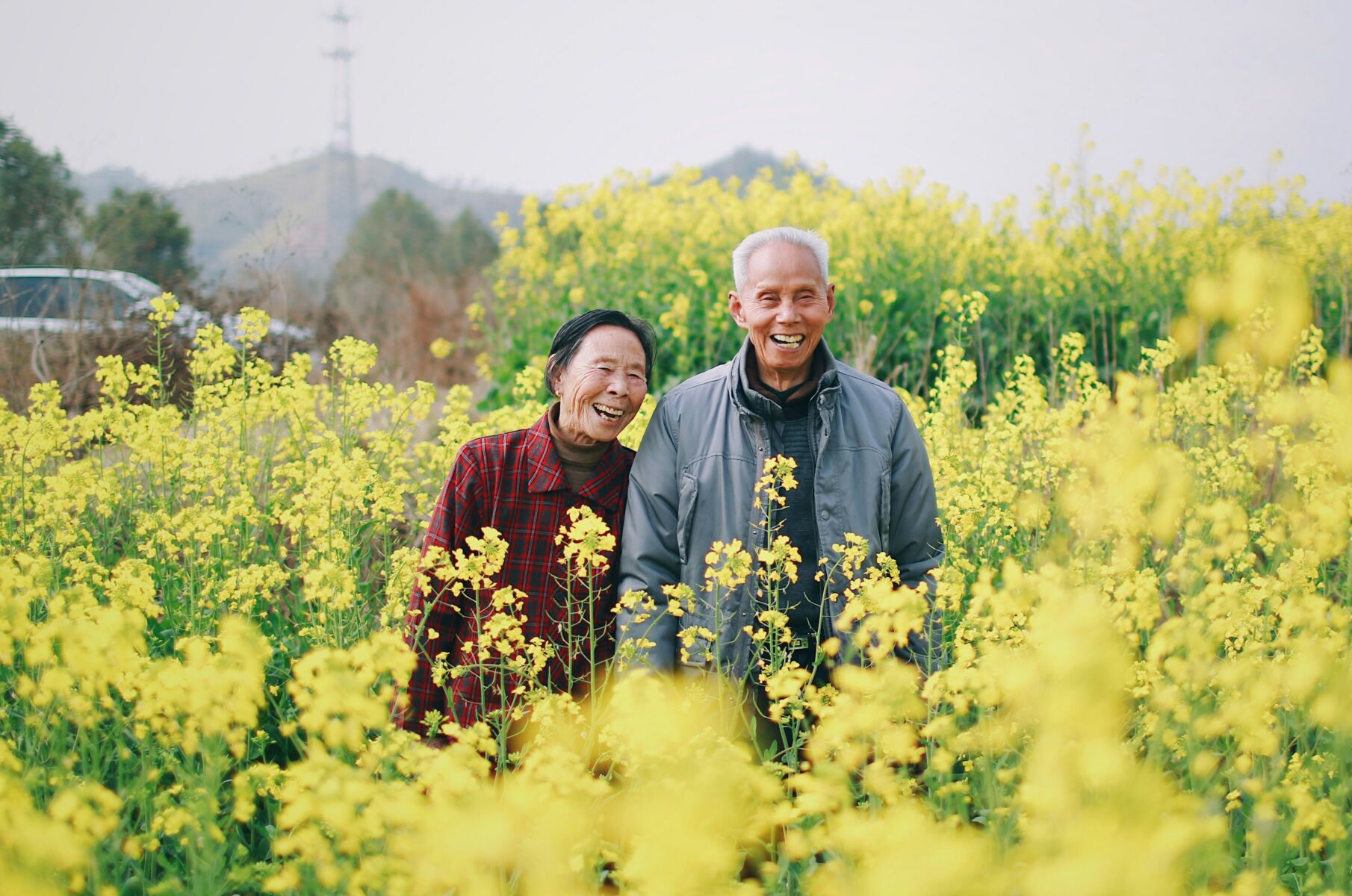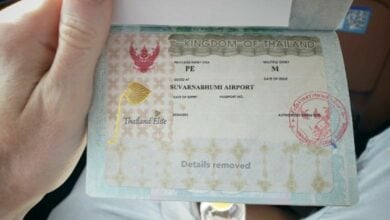Medical care tips for people nearing retirement in Thailand

Undertaking the complex process of navigating healthcare in one’s later years can prove a formidable task, especially if one is contemplating spending their retirement in Thailand. As one embarks on this fresh chapter, comprehension of the Thai healthcare system’s intricate details becomes vital, encompassing aspects from the officially sanctioned list of pharmaceuticals to the restrictions imposed on dental and optical coverage.
The prevalence of airborne pollutants, a recurrent challenge faced in the bustling metropolises of Thailand, presents an additional hurdle for individuals in retirement. The significance of considering the potential health hazards associated with this aspect is heightened, particularly for those individuals already battling respiratory conditions.
Exploring the realm of self-insurance is a possibility undertaken by many, driven by circumstance or deliberate decision. Irrespective of the course of action selected, equipping oneself with accurate and relevant information remains the cornerstone. Let us embark on a comprehensive exploration of the pivotal guidance for manoeuvring medical care for those standing on the threshold of retirement in Thailand.
Understanding Thailand’s healthcare system
Moving out of your home country for retirement introduces a new set of challenges, especially when it comes to healthcare. The complexity magnifies when considering Thailand, a popular expatriate destination. Recognising the need for expatriates to understand Thailand’s healthcare system, this section provides a comprehensive guide.
Public vs private healthcare services
People nearing retirement often find themselves in a quandary when deciding between public and private healthcare services offered in Thailand. On one hand, public healthcare offers affordable medical treatments. However, public hospitals are notorious for their long waiting times and language barrier issues. If you’re proficient in Thai, public healthcare could be a solid option.
On the other hand, private healthcare services provide top-notch medical care comparable to treatments back home. Equipped with the latest technology and English-speaking staff members, private hospitals offer personalised attention and shorter waiting times. Indeed, they attract a majority of medical tourists. However, the costlier nature of private treatments requires you to be insured or have significant savings.
Hospital networks for expatriates
Thailand boasts an impressive network of hospitals, both public and private, spread across the nation. Here, we focus on the hospital networks popular with expatriates. Bangkok Hospital and Bumrungrad International Hospital situated in the capital city, and Samitivej Hospital in Chonburi, are favourites amongst expatriates. Known for their high quality of treatment and international standards of care, they provide a variety of specialised services. Health insurance policies usually cover these hospitals but check with your provider to avoid encounters with unexpected costs.
Health insurance requirements for retirees

Entering your golden years brings about a bounty of changes, one of them being your health insurance needs. People nearing retirement in Thailand must focus on ensuring they have a robust health insurance policy in place. Here, we’re breaking down the necessary insights for you to consider when choosing the right insurance policy while making the most of Thai Social Security.
Choosing the right insurance plan
Thailand offers a host of retiree health insurance plans tailored to specific needs. These plans provide comprehensive health coverage, covering inpatient treatment, outpatient care, emergency services, and coverage for chronic conditions. They also afford access to a reputable network of healthcare providers.
It’s crucial to look for a comprehensive health insurance plan soon after deciding to retire in Thailand. With an abundance of quality private hospitals and an array of insurance plans to choose from, conducting careful research will lead to choosing the ideal plan that matches your unique requirements. Specific plans also offer coverage for instances not typically covered, such as motorcycle and car accidents, and provide benefits of lifetime renewal guarantees and stable annual premiums.
Integrating Thai social security with private health insurance
If considering the self-insurance route, one may contemplate taking advantage of the Thai Social Security system along with private health insurance—often referred to as a dual approach. Many choose to self-insure for health care expenses either due to necessity or by deliberate choice.
Thai Social Security, with standards on par with Western countries, covers major event occurrences such as surgeries, and long-term therapies like cancer treatments. Private monies kept aside can take care of out-of-pocket expenses associated with those procedures, and for routine outpatient treatments which might otherwise have an extensive waiting period under the public system.
Common health concerns and preventive care
As people nearing retirement age, certain common health concerns should be on your radar. Equipping yourself with knowledge about these conditions and how to prevent them can improve your health outcomes in the long run.
Routine health check-ups and their importance
Frequent health check-ups assist in the early detection of potential health threats. The importance of these, particularly for those nearing retirement, cannot be overstated. A complete blood count, for example, is recommended yearly for those over 55. Similarly, a blood sugar test, urinalysis, and cholesterol tests – every three years – act as essential indicators of your overall health.
Prevention supersedes cure; routine check-ups allow for early intervention, reducing the risk of serious complications down the line. Be sure to schedule an annual health check-up – the limits and tests for which are determined by factors such as your age and sex. For instance, bi-yearly eye exams are recommended for individuals over the age of 55.
Managing chronic conditions in Thailand
Chronic conditions, often arising as you age, pose a significant health concern. Successful management of these conditions is crucial to maintaining an optimal quality of life during your retirement years in Thailand. In case you suffer from a chronic condition, ensure a seamless relationship with your healthcare providers.
Although tasks related to managing chronic diseases may seem daunting, remember that various resources could facilitate this process in Thailand. Numerous specialist doctors offer their expertise in chronic disease management, offering personalised, comprehensive care. Remember, managing chronic conditions is not only about treating symptoms; it also involves adopting healthier lifestyle habits that promote total well-being.
Emergency healthcare services
Planning for unexpected health crises forms a vital part of retirement strategy, especially if you’re contemplating your post-career years in a foreign land like Thailand. Such preparation necessitates knowledge about emergency healthcare services and effective communication strategies in dire times.
Steps to access emergency care
Your journey towards receiving urgent medical aid starts as soon as a health crisis arises. Upon realisation of a serious injury or illness, it’s crucial to dial the Thai emergency number, 1669, immediately instead of fretting over the illness. This hotline connects you to highly trained emergency medical personnel who offer pre-hospital care to stabilise your condition.
Once you are in a medical facility, you need to present your medical insurance card. The complete coverage against a plethora of healthcare circumstances, including emergency care and specialised treatments, paves the way for swift medical attention without worries of lofty bills.
Useful contacts and communication tips
While having emergency medical numbers at your fingertips plays an instrumental role in emergencies, such measures barely scratch the surface. Avoid falling into the trap of complacency that results from having a list of emergency contacts. In addition to the standard emergency hotline, it’s beneficial to have contacts of local private healthcare providers handy. Examples include local doctors and private healthcare chains like Bumrungrad International and Thai Red Cross.
Creating a medical profile for quick reference during emergencies, consolidating essential health details such as blood type, known allergies or chronic conditions, and your current medications, eases communication with healthcare professionals, ensuring prompt care according to your particular needs.
Health and wellness lifestyle tips for retirees in Thailand

This section equips those nearing retirement with strategies that align with a healthier lifestyle in Thailand, focusing on adapting to the tropical climate and embracing good nutritional practices.
Adjusting to the tropical climate
Residing within Thailand’s tropical environment presents exposure to a wide spectrum of weather conditions, frequently characterised by elevated temperatures and humidity levels. One’s health must adapt to these changes, by particularly acknowledging the possible effects such climatic conditions can have on the human body.
Performing physical tasks in a thermally demanding setting can escalate the body’s heat production, which could result in a loss of fluids through perspiration, and potentially culminate in dehydration. Ergo, it is advised to maintain a consistent intake of water, and source alternative hydrating beverages such as coconut water, which is widely accessible in Thailand. It is critically essential to observe how your body adapts to such environmental shifts. If you encounter discomfort or symptoms symptomatic of conditions like heat exhaustion or heatstroke, please do not hesitate to pursue medical consultation.
Nutritional advice for ageing well
Maintaining a balanced diet is fundamental to optimal ageing, underpinning comprehensive physical health and cognitive functionality. Fortunately, Thai cuisine innately proffers an array of options aligned with a balanced dietary regime.
It is essential to accentuate the presence of fruits, legumes, and vegetables in meals while endeavouring to incorporate lean proteins such as poultry, seafood, and tofu. Given Thailand’s assortment of seafood variants, an extraordinary source of Omega-3 fatty acids is invariably available.
It is crucial to note that curtailing the intake of saturated fats while moderately ingesting wholesome fats, for example, the ones found in avocados, nuts, and seeds, contributes to cardiovascular wellness. Furthermore, calcium, which is integral for skeletal health, can be obtained from dairy products or alternatives fortified with calcium.
The legal retirement age in Thailand, typically 60, signifies when older individuals can access retirement benefits and pensions. It marks a transition period where they may retire from formal employment, focus on personal interests, and take advantage of senior privileges and services provided by the government and private sectors.

































